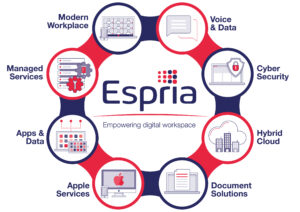Fraud threat affects every size of business, however smaller businesses can often be more vulnerable to fraud than those larger organisations. Last year an estimated £18.9 billion was lost as a result of fraud in SME’s alone.
Fraud can occur from within your organisation but can often extend beyond that even though Banks and other fraud prevention organisations have highlighted the need to be wary of disclosing information. Yet still worryingly, cyber crime is up by 63% in 2017. This is a decrease of 15% from the previous year, but this is still a concerning figure.
To ensure your business is protected you should identify:
- Common types of fraud that can expose your small business
- Steps you should take to prevent fraud and implement regulations to help you achieve this.
- Identify employees that could potentially commit fraud. This is an awful way to have to think but the reality is, to always keep an open mind and minimise the potential risk of any kind of fraud anywhere.
Whilst the types of fraud are no different to larger organisations, smaller businesses are more susceptible because they often do not have the measures in place to identify or ringfence potential issues.
Until your business understands the type of frauds that can occur, it’s essential to understand what fraud can be committed and this can be split into 6 categories:
Assets fraud
- Expenses theft: when an employee uses their expenses for their own benefit
- Compensation fraud: When an injury is exaggerated to gain compensation for something that wasn’t the company’s fault.
- Cheque forging/tampering: An employee forging signatures or altering payee info, amount info.
- Cash theft: Stealing physical cash from the business
- Product theft: When an employee uses company money to gain a product for their own use
Accounting
- Embezzlement: When someone has control of the company funds and uses them inappropriately for their own benefit
- Personal use purchases: When company funds are used to buy something for personal use, but it is recorded as legitimate company purposes.
- Accounts payable: This can be the most detrimental fraud to the business, as this can involve invoice or expenses tampering
- Fake Employees: When an employee does not exist but appears on the payroll
- Ghost suppliers: Suppliers that don’t exist that are billing for services or products that don’t exist.
Data:
- Trade secrets: when these are sold to competitors to the detriment to your business.
- Theft of sensitive data: when data such as credit card numbers, client info is sold to 3rd
Bribery & or corruption:
- Bribes: This occurs when another business is paid to aid their own company’s or personal benefit.
- Product fakes: When the original product is substituted for inferior products than what was initially agreed. This is usually to help reduce cost.
Billing:
- Billing schemes: False payments are sent to individuals within the business from the company and can involve creating a fake customer or editing an existing one.
Overcharging:
- Overcharging people than what was initially agreed.
Preventing fraud in small business:
There are several steps to prevent fraud in your small business and protect your assets whether they are physical or monetary assets. So, we have come up with a series of tips to help you:
Know your clients: Vet potential clients, there is nothing wring in ascertaining who your potential clients are.
Threats identified: dubious clients can use several methods to pay for things which could leave you out of pocket. This can include using cloned cards to make payments.
Cheque fraud: This is a great way to commit fraud. The fraudster can leave with the product but leave you with a cheque that can be bounced by the bank
Therefore, only accept cheques from trusted customers and suppliers and always use a pen and cross through any empty spaces. Ask for alternative payment if the cheque appears to look wrong in any way or if the customer writes a greater amount and asks for change.
Cash: fraudulent cash is an old school tactic, and this is still occurring even in the light of the new £5 £10 notes. Therefore, always check the following:
- Any raised print: you should feel this on words like “Bank of England” if it feels flat then it could be fake.
- The print on the new polymer notes is sharp: if there is any blurriness then then its fake. Big Ben is finely detailed and when the note is tilted you should see a coloured rainbow effect.
Look out for suspicious orders: if a client wants to pay outside of your preferred payment method this will lower your protection to fraud, so you should always stick to your payment methods.
Secure your assets
- List your assets (Physical and digital) and initiate an action plan on how you can keep these safe. E.g. loss of data is extremely detrimental to your business.
- Protect your branding and identity: this is the most valuable thing to you so read up on your intellectual property rights. Plus ensure that your details at Companies house is protected as this is often an ideal place for fraudsters to go to obtain your details.
- All businesses must comply with the Payment Card Industry and Data Security Standard (PCI DSS) an this applies to all businesses that handle card and online payments. There are huge consequences if you do not comply
- Know your suppliers: invoice fraud is the most common type of B2B fraud. Research who you are dealing with and keep regular checks on them including financial health checks.
- Know your employees: 80% of data breaches occur as a result of employees according to the Information Commissioners Office. Monitor their behaviour and be alerted to any changes in their behaviour as even the most loyal person can be swayed into committing fraud.
- Implement an anti-fraud/Anti bribery policy in your company handbook so that everyone is clear that this behaviour is not accepted and will result in disciplinary procedures.
- Educate your employees on fraud and bribery: including preventing the use of common passwords and implement a policy to ensure that the company data and products are secure.
- Keep clear records: As a small business it is very easy to be stretched in all directions but keeping consistent and clear records will minimise your risk to fraud.
- One computer for accounting: do not allow people to use social media on this computer as this can create vulnerabilities that can allow hackers to break into your accounting systems.
- Insurance cover: essential for any business so that you are covered if you do fall victim to fraud.
- Secure your IT: implement a firewall as well as anti-virus, spyware, and malware detection.
Fraud threat affects every size of business, however smaller businesses can often be more vulnerable to fraud than those larger organisations. Last year an estimated £18.9 billion was lost as a result of fraud in SME’s alone.

If you need any assistance with how Mode can help you secure your hardware and software against fraud then visit our Secure Printing Section or contact us on 0345 223 2203 or alternatively email us on [email protected]

